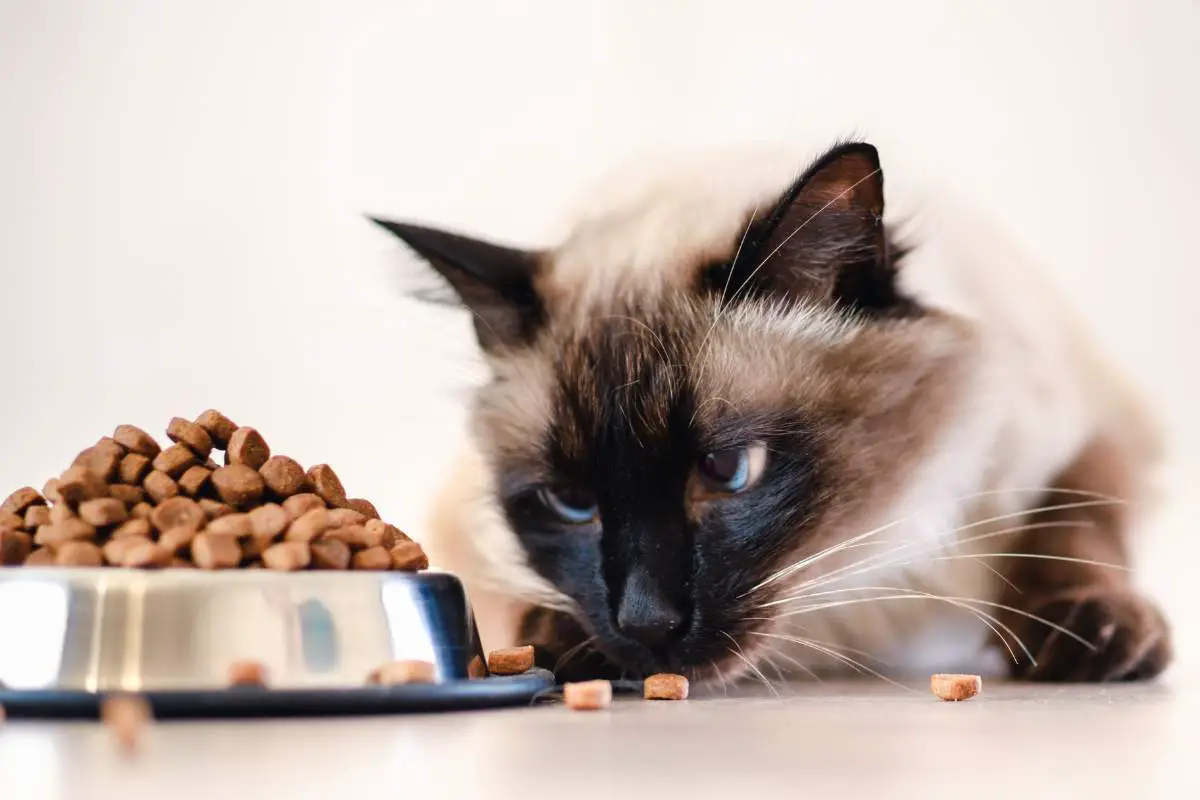Like most cat owners, you’ve probably had a time when your cat sat at its bowl and asked for more food. Unfortunately, even after being given a full portion, they continue to meow and demand more food.
Cats are interesting creatures and are often very picky about what they’ll eat. But if you’ve ever wondered why your cat does this, here are some answers to your question.
Article Highlights:
- There are many reasons why cats keep asking for food, such as wanting attention, not liking the taste of the food, whisker fatigue, or health problems.
- The most common health problems for cats are intestinal worms, hyperthyroidism, and diabetes.
- It’s crucial to understand how much food your cat needs in order to satisfy its hunger.
Why does my cat want food when his bowl is full?
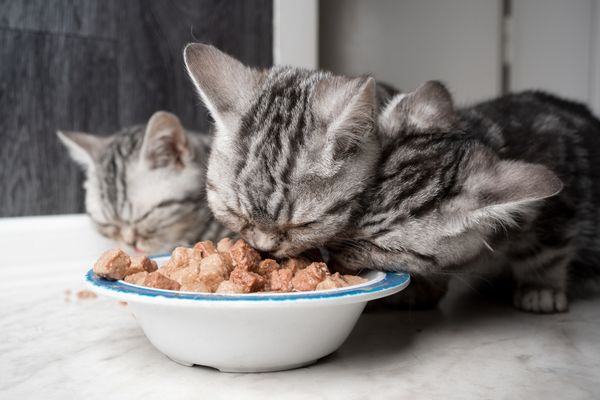
A cat’s begging for food may not always indicate that it’s actually hungry. They may be seeking attention or some other form of comfort, but it could mean anything.
Your fur friend may also be telling you that they’re feeling uncomfortable, so it’s important to check and ask yourself if anything has changed in their lives or if they’ve recently had an experience that may have caused them stress or discomfort.
How do cats beg for food?
Cats are very good at getting what they want, and if you’ve ever seen your cat try to beg for food, you’ve probably noticed that he uses a variety of tactics to attract your attention and get what he wants. They might do this by rubbing their bodies against you or meowing at you, making it abundantly clear that they want you to pay attention to what they have to say.
Reasons why cats want more food even when their bowl is full
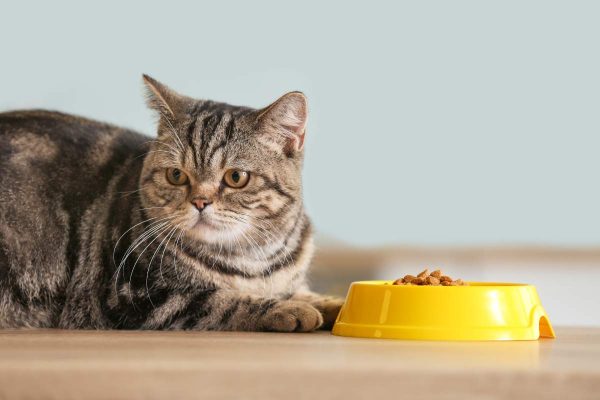
The following is a list of some of the possible explanations for why your cat continues to meow for food even though their bowl is already full:
1. They want your attention
Cats may seem to want more food even when their bowl is full because they want attention. Cats are naturally very independent animals that don’t need a lot of human interaction to survive.
But they really want to feel cared for and noticed, which is why it’s important to give attention to your cat occasionally even if they’ve had enough to eat.
The reason we put this as #1 on the list is because it could be the most likely reason. Our cat freaks out if the bottom of his bowl can be seen and wants a refill. I think it’s just a way to get attention.
2. They don’t like the taste of the food
If your cat continues begging for food despite your best efforts, it may be because they aren’t enjoying the food you are providing. Cats are extremely picky eaters, so it shouldn’t come as much of a surprise if they behave in this manner.
According to PetMD, the reason cats have a picky appetite is that they don’t possess the genes that are required for them to be able to taste sweet substances. Because of this, they’re unable to taste in the same way that other mammals are able to.
3. They have whisker fatigue
The whiskers on a cat’s face are used for more than just decoration, and cats rely on them to detect touch and guide them through their environment. As a result, whiskers on a cat’s face are extremely sensitive.
It’s possible for a cat’s whiskers to become irritated when they’re pushed up against the side of their bowl while they’re eating. Due to whisker fatigue, a cat’s behavior around food may change and can give the impression that they’re hungry and wants more food than usual.
4. They have medical problems
If you’ve noticed that your cat is acting strangely and has a larger appetite than usual, it’s possible that this is due to a medical issue. Most cats are good at hiding their pain and discomfort.
If you notice that your cat is eating significantly more than usual, this could be an indication that something is wrong. If you notice a change in your cat’s eating habits, you must take them to the veterinarian as soon as possible for an examination.
Common medical issue for cats with an increased appetite
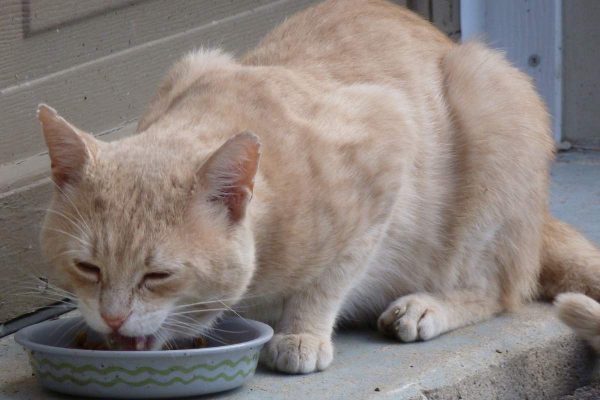
1. Intestinal worms
When a cat suddenly starts eating more, intestinal worms are one of the more likely health problems they could be suffering from. These are the kinds of parasites that can live inside of your cat and cause them to have an endless feeling of hunger.
It’s also possible that your cat’s swollen body could make it appear to be gaining weight, even though the parasites are causing it to receive very little nutrition.
2. Diabetes
If your cat is urinating and drinking more frequently in addition to an increased appetite, this could be a sign that they have diabetes. Between 0.2% and 1% of cats are diagnosed with this diabetes, a disease that causes abnormalities in the body due to a high sugar level.
Several risk factors can lead to diabetes in cats, including being overweight, getting older, and not getting enough exercise.
3. Hyperthyroidism
Hyperthyroidism is a condition that’s quite common in senior cats and affects approximately 10% of them. This condition manifests itself when one or more of your cat’s thyroid glands become overactive and produce an excessive amount of thyroid hormone.
This high level of thyroid hormone can result in a loss of weight, increased appetite, increased thirst, and urination, as well as vomiting and diarrhea. If your cat exhibits one or more of these symptoms, you should take them to the veterinarian as soon as possible.
How do I know if I’m feeding my cat enough?
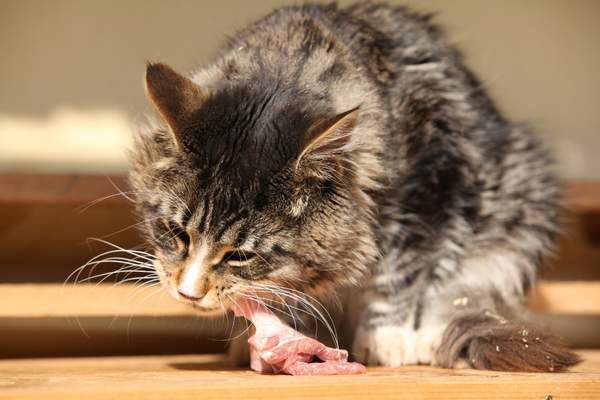
There are a few easy ways to tell if your cat is getting the nutrition it needs. The most important thing to remember is that cats are carnivores, which means they must eat meat to survive. Since adult cats require 26% protein in their diet, you should always look for that percentage when shopping for cat food.
A veterinarian can help you determine the appropriate amount of food for your cat. This will ensure that your cat won’t be overweight or underweight.
Final Thoughts
Cats are natural hunters, and they’re hardwired to hunt whenever they experience hunger. If you have a cat, you know that when they want something, they can be very determined to get it.
So, owners need to give their cats the right amount of food because if they eat too much or too little, it can cause health problems for them in the future. If your cat keeps meowing for food even after you’ve filled its bowl and paid them a lot of attention, this could be a sign that there are problems with its health or behavior.

